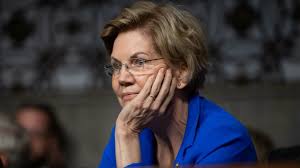After the New Hampshire presidential primary, Vermont Senator Bernie Sanders stands as
the candidate with the
most easily imagined nomination scenario. Even if he shouldn’t start writing
his acceptance speech, his path appears clearer than any of his rivals. Though
voters in only two states have spoken, perhaps we can see a possible outcome.
This situation again illustrates the
outsized importance of the first two states --- Iowa and New Hampshire. Despite complaints that their
demographics
don’t represent the Democratic electorate, they’ve helped put more than half
the initial field on the sidelines, left others barely hanging on, and sent several
more toward the door.
The Sanders Path
Because of his ample war chest,
filled by small dollar contributions raised on line, and
his
loyal following (the so-called Bernie Bros), Sanders can stay in the race for
the long haul. He needs around 30% of the vote in each of the next few contests
(he got 26% in New Hampshire). Assuming the
moderates don’t coalesce around one
candidate, at that rate, Sanders will outpace the opposition in delegates and
keep the money flowing. By mid-March, with the contests in Iowa, New Hampshire,
Nevada, South Carolina, and Super Tuesday done, Sanders
could have an
insurmountable delegate lead, even if he hasn’t formally clinched the
nomination.
That delegate position would create a real problem for a
“Stop Bernie” movement. If he arrives at the convention with two or three times
more delegates than any one opponent, an effort by party insiders that might
hand someone else the nomination will look unfair and very (small “d”)
un-democratic.
Joe Biden’s Desperate
Plight
Former Vice President Joe Biden remains in the race, despite dismal showings in Iowa
and New Hampshire. He now depends on a strong performance in Nevada (February
22) and an out and out victory in South Carolina a week later, where he counts
on support from African-Americans. It’s possible neither happens.
In Nevada, former South Bend, Indiana
Mayor Pete Buttigieg, who trailed Sanders by less
than
two percentage points in New Hampshire, has money and momentum. Minnesota
Senator Amy Klobuchar, the surprise third place New Hampshire finisher, certainly will make a run
in Nevada, even if she doesn’t
have the money and infrastructure for a win. Any success Buttigieg and
Klobuchar have would cost Biden, as might a comeback by Massachusetts Senator Elizabeth Warren, who finished a disappointing fourth
in New Hampshire, getting no delegates.
 |
| Pete Buttigieg |
 |
| Amy Klobuchar |
 |
| Elizabeth Warren |
South Carolina presents a different situation.
Neither Buttigieg nor Klobuchar have much
history of attracting black support. Buttigieg’s problems with police
issues in South Bend
have been well documented. Klobuchar could soon face questions
about her Minnesota prosecutorial record. Sanders has never done especially well among
African-American voters either, but he has the money and campaign
infrastructure for a significant push. Billionaire Tom Steyer remains in the race despite getting less than 4% in New
Hampshire. He has invested significantly in South Carolina, both in ads and
campaign staff.
 |
| Black Voters |
Whatever support Buttigieg, Klobuchar, and Steyer, or even
Warren, generate in South Carolina probably comes mostly at Biden’s expense.
Meantime, Sanders seems positioned for getting his share and keeping his
momentum, even if he doesn’t win the state.
The Looming Mr.
Bloomberg
Former New York Mayor Michael Bloomberg, with a personal fortune reported at
more than $55 billion, has already spent over $300 million on ads and other
promotion since he announced last fall, too late for getting into the early contests. He’s risen to 17% in one national poll. The Democratic National Committee has changed some rules, soon letting
him onto the debate stage.
Anecdotal evidence suggests some black voters might desert the sinking Biden ship
for
Bloomberg, despite his stop-and-frisk program in New York. In fairness,
Bloomberg can point out positive acts that benefited blacks while he was New
York Mayor and since. His television ads featuring glowing
praise from President Obama could have a powerful effect.
Bloomberg’s impact on the race remains
uncertain. He’s not on the ballot
in some states because of his late entry. Support in national polls may not translate
into state primary victories and delegates, as Biden now knows so well. Nobody
has seen Bloomberg on a presidential debate stage, so how he’ll do is mainly
guesswork. But money is the mother’s milk of politics. He has plenty and will spend
it.
 |
| Michael Bloomberg |
Where are We?
We started with the fact Bernie
Sanders apparently has the most plausible narrative
going forward. Maybe, at this
point, he stands as the most likely Democratic nominee. He, however, has
challenges too. In Nevada leaders of the powerful culinary workers union remain
nervous about Sanders and Medicare for
all. That union bargained hard for health benefits and many members don’t like
the idea of relinquishing them in favor of a government takeover.
More generally, elected Democrats fearful of a standard
bearer who embraces the “socialist” label will likely start a vigorous
pushback. Since beating somebody with nobody can’t happen, they must find a
candidate.
 |
| Trump 2020 vs Which Democratic Candidate? |
Klobuchar? Buttigieg? The campaign Trump might run against either gives some
Democrats pause. Klobuchar, fairly or not, bears the burden of Hillary Clinton’s loss. Trump probably relishes the idea of
facing another woman he can insult. Many Americans believe Buttigieg’s sexual
orientation isn’t fair game. Trump probably isn’t one of them. Bloomberg? As we said, he has money but remains
untested. Despite the fact New Hampshire provided some clarity and direction,
this isn’t over.
The turmoil in the Justice Department over
Trump’s latest intervention into a sentencing recommendation illustrated the corruption and rot in his presidency, and the need for removing him. The election now
represents the only
chance. Whoever Democrats pick, they must get it
right. 












No comments:
Post a Comment